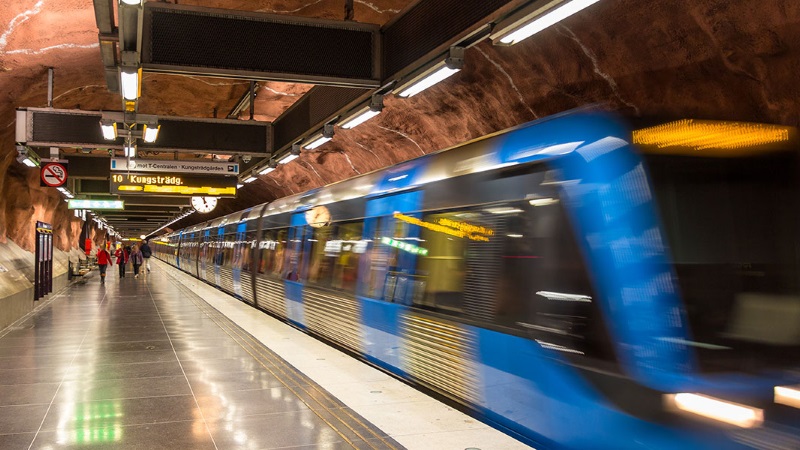The future of travel payments in the Nordics

Our options for travelling and transportation seems endless today, just imagine every new low-cost airline, car sharing service or self-driving electric bus out there. However, paying for travel and transit can sometimes feel limited and complicated.
But does this really have to be the case? Shouldn’t technology facilitate rather than limit us? And what are local stakeholders doing about it? These were some of many interesting questions we addressed during our second Visa Network Breakfast at the Fintech Hub in Stockholm.
Our own Steven Orelowitz from the Visa Global Transit Solutions Team (VGTS Team) in London joined Gerhard Wennerström, CEO at Samtrafiken (a Swedish organisation of 60 regional transit operators) and Karl Rydal, Business Manager for Mobile Ticketing at SL (Stockholm Public Transport) for an inspiring talk on innovation and travel payments.
Imagine coming to a new city for a nice weekend holiday. Many times, the first thing you need to do to get around town is to stand in line, buy a ticket or a travel pass or download an app. And even before you get so far you first need to understand the various fare and zoning systems, which usually varies from every city, region and country.
I think Steven Orelowitz from our VGTS Team made a great comparison on how outdated some of these ticket systems can feel: “You don’t go to the supermarket to buy a ticket so that you then can buy milk. You just tap and go. Why should it be any different when travelling?”
The possibility to use your Visa card as your travel pass is not yet possible in Stockholm. This might strike you as odd when for a long time Swedes have been at the forefront when it comes to making card payments. According to our own study, Swedes pay with cards more than three times more, compared to the average European. However, options to pay for travel tickets are still somewhat limited.
We need to make travel and transit easier and more consumer friendly. One way of doing just that is to implement new innovative payment solutions. Because making it easier to pay, means making it easier to travel.
Our VGTS Team does a lot of great work all over the world collaborating with transit operators to help them accelerate seamless and friction-free commuting with contactless payments. One of the best cases, which Steven highlighted during the discussion on stage, is the work done by the VGTS Team together with Transport for London (TFL). In London it is possible for travellers to tap and go on TFL with their Visa or bank card.
The program was launched in 2013 and today 55 percent of all pay-as-you-go journeys are made on bank cards in London, this in a city that sees 11 million public transportation trips per day. Very impressive! Since making paying for tickets easier, TFL has seen a 7 percent increase in ridership and a significant reduction in people avoiding paying for fares.
The challenge for many public transit operators is that as it is a public service, the payment and identification technologies they implement need to work for everyone. This is where paying with contactless can be a great addition to existing systems and help reduce friction. Especially for not-so-frequent travellers or visitors. Even though it’s not possible to tap and go using your bank card in the Stockholm metro, interesting work is being done.
The beginning of the year saw the launch of new ticket readers in the Stockholm public transport system. The new readers are making it possible to buy and use travel tickets on smart phones. This will help make it easier for all travellers as you can now tap your phone at the automatic barriers before entering the metro and at the same time it will help reduce the risk of fraud which was common with the old text message tickets.
I encourage you to listen to the entire talk (in English language) for insights on what the future holds for travel payments in the Nordics and beyond. Towards the end, all three participants share interesting thoughts on new innovative technologies like biometrics; solutions that won’t require you to tap or swipe anything before embarking on your next journey.
Listen to the podcast from our Visa Network Breakfast at the Fintech Hub in Stockholm